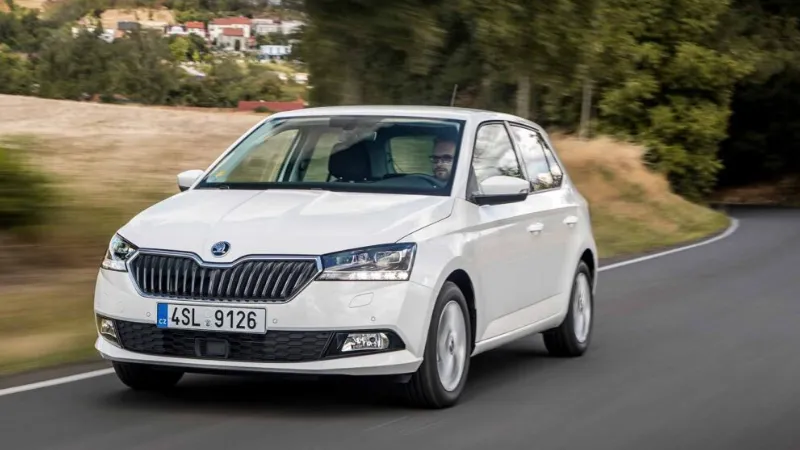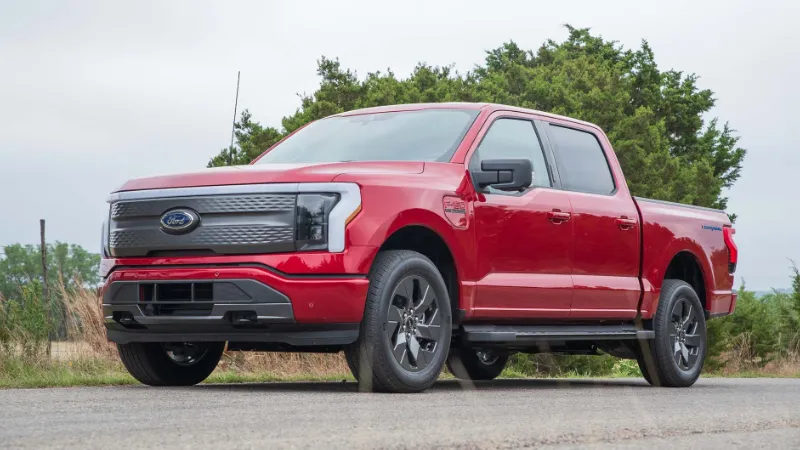It is not difficult to switch car insurance. But it does require you to conduct some research and communication with the old and new insurance companies. Below will give you steps on how to switch car insurance, why switch car insurance companies, when to switch car insurance, and FAQs.
Shopping around, choosing the best policy, canceling prior coverage, obtaining proof of insurance, and notifying a lender are the steps in switching car insurance.
For more information, continue reading.
How to Switch Car Insurance?
If you’re considering changing your auto insurance provider, you might be unsure of how to do so. Here’s how to navigate an insurance company change:
Consider Your Coverage Options
A lack of auto insurance can leave you vulnerable financially, but having too much coverage may result in you paying too much. When you don’t have a loan or lease, it might not be cost-effective to pay the higher rates that come with a full coverage policy if you have an old car that isn’t worth much. If you feel that your current level of coverage is adequate but that you are still overspending, you might want to change your auto insurance. Full coverage car insurance is a great choice especially choosing car insurances.
In the end, the more coverage you add to your auto insurance plan, the more it will cost. Understanding the different types of car insurance coverage and which ones you require is a crucial first step if you’re wondering how to switch your auto insurance.

Check for Potential Penalties
If you decide that switching your car insurance is the right option, you may want to find out if there are any penalties, like a cancellation fee, for changing car insurance carriers before the end of the coverage period. Fortunately, as long as you give proper notice, auto insurance companies typically give you the freedom to revoke your policy whenever you want.
Although the majority of auto insurance companies will probably refund any unused premium, some may impose a fee if you decide to end your policy in the middle of its term. Before terminating your policy, you might want to speak with your company’s customer service team or ask your agent if the company has any specific cancellation requirements.
You might want to wait to switch policies until your current policy is up for renewal if you learn that there will be a penalty for canceling in the middle of your term. However, switching insurance providers might still be financially advantageous if you can find a new policy with a premium that more than offsets any cancellation fees levied by your current carrier. Read more: Average Cost of Car Insurance
Compare Car Insurance Quotes from Multiple Carriers
Get quotes from several different auto insurers if you’ve decided it’s a good idea to switch carriers. You can do this to compare the costs of different auto insurance policies, their options for coverage, and any discounts you may be entitled to. Just make sure you are getting quotes for the same coverage types and limits, so you are comparing premiums evenly. Whether you are getting quotes online, by phone or at an agency, you’ll likely need to be prepared with some basic information:
- Address where the car will be stored
- Vehicle year, make and model
- Vehicle identification number (VIN)
- Driver’s license numbers for all drivers you need listed on the policy (auto insurers will use this information to review your motor vehicle record and any other personal factors that might affect your premium, such as your credit-based insurance score in some states)
- Social Security numbers for the policy owners (not all companies require this, but it is a common practice to ensure that the credit-basedinsurance score is matching up with the correct named insured)
You can look over the discounts that are offered as you research companies. You might find cheaper insurance if you ask businesses to include all the discounts you are eligible for on a quote.

Contact Your Current Carrier
It might be beneficial to get in touch with your current provider as you are obtaining quotes from other carriers. The idea that insurance rates are negotiable is untrue (your provider won’t be able to lower your bill in order to keep your business), but you may be able to find other ways to save money that you are currently overlooking. Your agent might be able to offer you advice on how to cut your expenses, such as keeping a clean driving record or even purchasing a less expensive car.
If your insurance is issued by an independent agency, this step is especially crucial. Unlike captive agents who only promote a single insurer, independent insurance agents are able to represent a wide range of insurance companies. While keeping your policy with the same agency, an independent insurance broker may be able to shop your policy among several carriers to find you a lower rate.
Research the New Company
Before acquiring a policy, you might want to conduct in-depth research on the insurer. When comparing car insurance options, cost isn’t the only thing to take into account. Reviewing other metrics can help ensure that you choose a carrier that fits all your needs, not just your budget. Some helpful resources include:
- Bankrate insurance company reviews: The editorial staff at Bankrate chooses which auto insurance providers to highlight by examining average premiums, customer service ratings, third-party financial strength ratings, available coverage options, and discounts. In addition to our best overall company picks, we also looked at the best car insurance carriers in each state to help give you a better sense of what is available in your area and how much it might cost.
- The National Association of Insurance Commissioners (NAIC): Based on the typical quantity of customer complaints a company receives, this organization rates each business. A score above 1.00 indicates that there were more complaints than the industry average, while a score below 1.00 indicates that there were fewer complaints than the industry average.
- D. Power:This company conducts studies from multiple angles, including overall customer satisfaction and claims satisfaction, and assigns a score to each car insurance company. Some of its rankings are also region-specific.
- AM Best:If you want to know more about a company’s financial strength, AM Best may be a good resource. Based on a variety of financial indicators, including those that can show a company’s track record of paying claims, AM Best assigns letter grades to businesses. The higher a company’s AM Best rating, the more financially stable that company has historically been.
While cost should not be overlooked, it is not the only factor you should take into account when selecting an auto insurance provider. You may find it easier to select a carrier that meets your needs if you work with a licensed insurance professional.
Avoid a Lapse in Coverage
You risk having your coverage lapse if you switch your auto insurance after your current policy expires. A lapse in insurance protection could result in significant legal and financial difficulties, particularly if you are involved in an accident while uninsured. If you cause an accident and you do not have insurance coverage, you will be responsible for the damages, including any applicable medical bills, out of pocket. Most states require insurance companies to submit proof of insurance to the Department of Motor Vehicles after an accident if police are called, even if you are not at fault. Your driving privileges may be revoked if you drive without auto insurance.
Driving without insurance may make insurance companies view you as a high-risk driver, which could result in them raising your premiums in the future. Your new insurer should be able to time the activation of your new policy so that it begins exactly as your old coverage ends. You may want to know: How Long Does It Take to Get Car Insurance?
Make Sure Your Old Policy is Canceled
Do not assume that your current policy will be automatically canceled if you stop making payments if you are switching your auto insurance to a new insurer. When transferring to a new auto insurance provider, the majority of insurance professionals advise that you get in touch with your current carrier to cancel your policy.
Follow these few steps to terminate your prior policy:
- Tell your current insurance provider that you are canceling your policy by making contact with it. It won’t charge you in the future for coverage if you do this.
- You might need to sign into an online account to stop any automatic withdrawals if you selected automatic payments. Make sure to stop the payments with your bank if you pay your premiums using the bill-pay service offered by your bank.
- Demand a written confirmation of the termination from your carrier.
For canceling policies, each insurance provider has a unique procedure. It might be necessary for you to call and speak with a customer service representative of the business directly, or you might need to sign a form authorizing the cancellation. Through the process, your insurance agent can assist you.

Print Out Your New Car Insurance ID Cards
You’ll probably want to replace your old insurance ID card with an updated one to keep in your vehicle or wallet once you’ve formally canceled your old policy and started your new one. If you get stopped by law enforcement or become involved in an accident, you will need proof of coverage under your new auto insurance provider.
How does car insurance work? The purpose of having auto insurance is to safeguard your finances in the event of an accident. Auto insurance can assist in paying for repairs to your car and medical care for your injuries if a tree falls on your car or you are the victim of a hit-and-run. It also provides liability coverage, in case you are at fault for an accident that causes injury or property damage to others.
Suggested Car Insurance Reviews:
Reasons to Switch Car Insurance Companies
“In the event that the services offered by your current insurer don’t satisfy your needs, it might be time to switch insurers. For example, if you have a poor claims experience or an unexplained rate increase, it might be time to consider other options,” says Jon Bloom, vice president of product management at Erie Insurance.
Here are reasons that might merit a switch to a new insurer:
- Your claims experience was unpleasant. Usually, we don’t find out how good our insurance provider is until we need to file a claim. If you had a negative claims experience, you might be considering leaving the company.
- It’s time to renew your policy. Your insurance requirements will alter as you hit major life milestones. So, before your current policy renews, it would be a good idea to review your coverage. You might want to switch companies if you feel like you’re paying too much.
- You’re investing in a brand-new automobile. Make sure the car has enough coverage before you purchase a new one. For example, you may want gap insurance if you take out a loan or lease, but not every company offers this coverage type. Questioning how long does GAP insurance last? Maybe you’re curious about your GAP Coverage’s cancellation or refund options. We’ll address all of your GAP Insurance questions in the paragraphs that follow. Read Now!
- You are moving. The cost of your auto insurance depends on where you live. But not all insurers price their coverage the same, which is why it’s a good idea to compare car insurance quotes from multiple insurers. Also, keep in mind that you might be forced to switch insurers because your current one may not provide coverage where you are moving. Explore the answer: Average Cost of Car Insurance for 18-Year-Olds, How Much is Car Insurance for a 16-year-old
- You’re about to tie the knot. Most insurance companies offer car insurance discounts for insuring multiple vehicles on one car insurance policy. If you and your spouse have different insurance providers, now might be the ideal time to find one that provides the best coverage and rates.
- The driver is a teen. Your yearly premium could go up by more than $2,000 if you add a teen to your policy. The cost of teen drivers varies among insurers. That’s why it’s worth shopping around to find the best cheap car insurance for teen drivers. Check for What Age Does Car Insurance Go Down?
- You are retiring. You can wave goodbye to the daily commute when you retire. With fewer miles driven, you may want to look into a non-traditional type of car insurance like pay-per mile insurance. Check for How to Get Car Insurance Before Buying a Car?
- Your credit report has been updated. In many states, insurance companies will factor in your credit history when calculating the cost of your coverage. Why is Car Insurance So Expensive? While drivers with bad credit pay more than drivers with good credit, not all companies hike rates by the same amount. In other words, even with bad credit, you can compare quotes and find a lower rate.
- You were involved in an accident or committed a traffic infraction. If you’ve reported an accident or have moving violations on your record, you typically pay more for coverage. Nevertheless, every company will have a different rate increase. Even if you have recent traffic violations or accidents on your record, you might find a company that offers a lower rate than your current one.
Top Car Rental Reviews:
- Routes Car Rental Reviews
- NU Car Rental Reviews
- Kyte Car Rental Reviews
- Hopper Car Rental Reviews
- Avail Car Rentals Reviews

When Can You Switch Car Insurance?
It’s always possible to change auto insurance providers. This includes the day your coverage begins and even if there are any open claims. Furthermore, if you switch more than once in a calendar year, you won’t be penalized.
For the sake of obtaining the best price, we advise shopping around for coverage at least once each policy term. Beyond that, it’s a good idea to consider a switch if your life situation changes in one of the ways described above.
If you’re considering changing the amount of coverage you have, compare prices as well. Some providers are cheaper for minimum liability car insurance, while others offer cheaper full coverage rates.
You may be interested:
When Not to Switch Car Insurance Providers
While you can switch car insurance at any time, that doesn’t mean every time is the best time. Be aware that depending on how long you’ve had a policy with a particular provider, some auto insurance companies may offer discounts. You won’t be qualified for a loyalty discount if you change companies after a month has passed.
If there is a cancellation fee within a certain time period, ask your auto insurance provider if it does so. Most businesses allow cancellations without incurring any fees, but this isn’t always the case. To avoid any fees, you might want to wait until your policy expires.
Additionally, if you have an active at-fault claim, it is best to avoid switching auto insurance providers. While this is permitted, once the claim has been resolved or at the end of your current policy term, your rates may go up to reflect the added expense. If you have to change providers in the middle of a claim, be sure to tell your new provider the whole truth about it because keeping anything out could result in even higher rates.
Speaking of Rental Cars, You Pobably Want to Know:

FAQs
How Will the Switching Work? Do I Need to Cancel My Previous Car Insurance First?
It doesn’t really matter if you purchase a new policy before canceling an existing one or the other way around. To continue receiving coverage, you simply need to inform the insurers of the appropriate cancellation and new policy start dates.
Are There Any Penalties for Switching Car Insurance before a Year? What’s the Cost?
Although some insurers do charge an administration fee for cancellation of the policy, you might be eligible for a pro rata refund of some of the upfront premiums paid.
Will I Get a Refund for Switching Car Insurance from My Previous Insurer?
If you cancel your policy before it expires, you should be able to get a refund for the remaining period of the insurance premium paid. Do note that the amount of refund most likely varies between different car insurers. If a claim has been made, there usually won’t be a refund.
Can I Switch/transfer My Car Insurance from My Previous Car to a New Car That I’m Buying?
Unfortunately, because the make and model of your new car will likely be quite different from your old one, most insurance companies do not permit you to transfer your insurance from your old car to your new one.
Will My NCD Be Intact If I Switch Car Insurance?
While you can’t transfer the car insurance for your previous car to your new car, the good news is that you can keep your NCD intact. Your eligibility for the NCD will be verified by your new auto insurer, who will then provide you with a premium estimate.
Summary: How to Switch Car Insurance?
Shopping around, choosing the best policy, canceling prior coverage, obtaining proof of insurance, and notifying a lender are the steps in switching car insurance.
If your rates are higher, you have better credit, or you move with a family member who is covered, switching your auto insurance policy may be advantageous for you. However, we recommend thoroughly searching around and comparing your options before making a decision. While it takes time to find the best rate and switch your car insurance company, it can be worth it in the long run.
If you have any questions, please leave a comment. KV Auto tries to give you the best car industry information. Thank you for reading.





